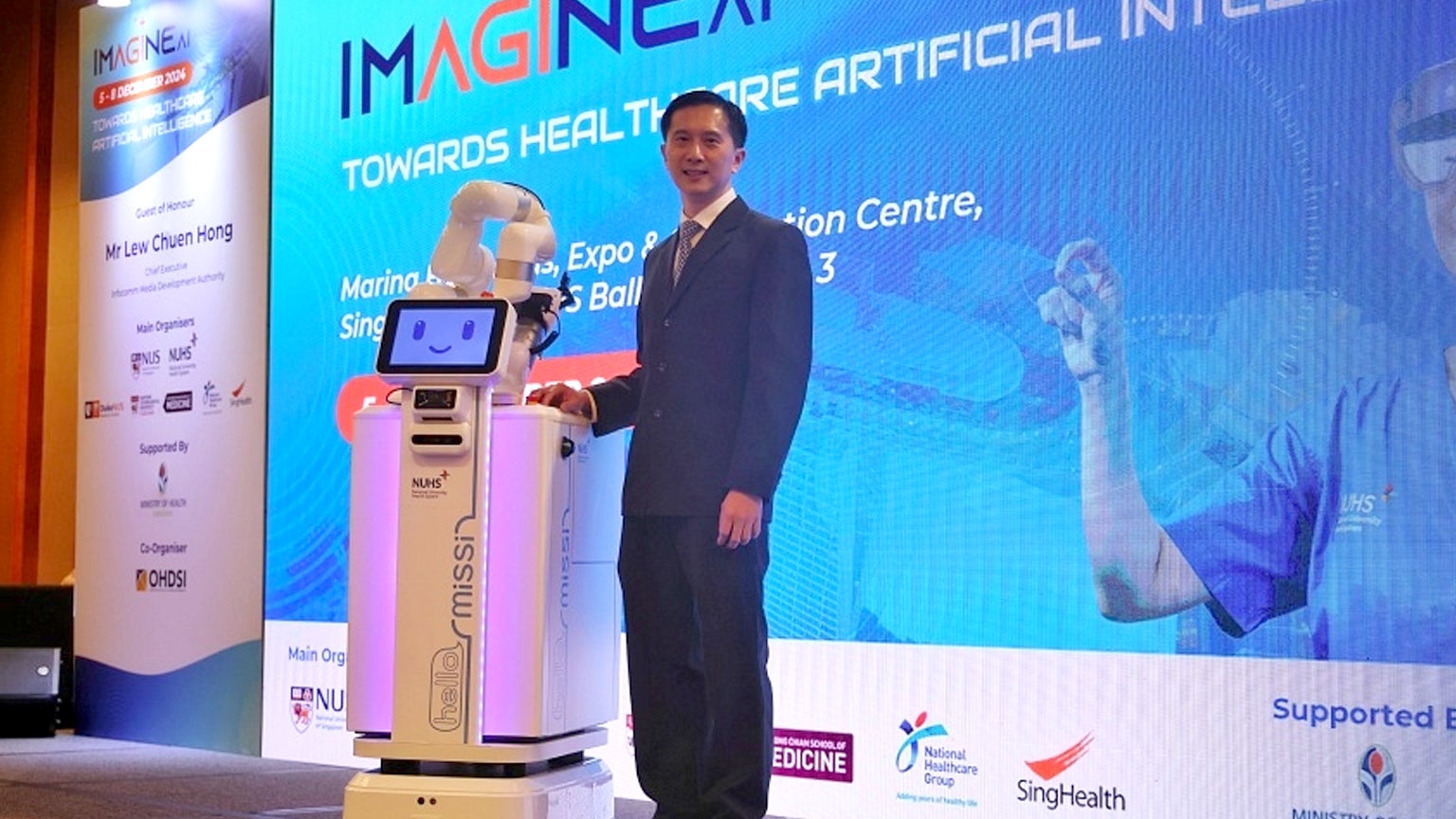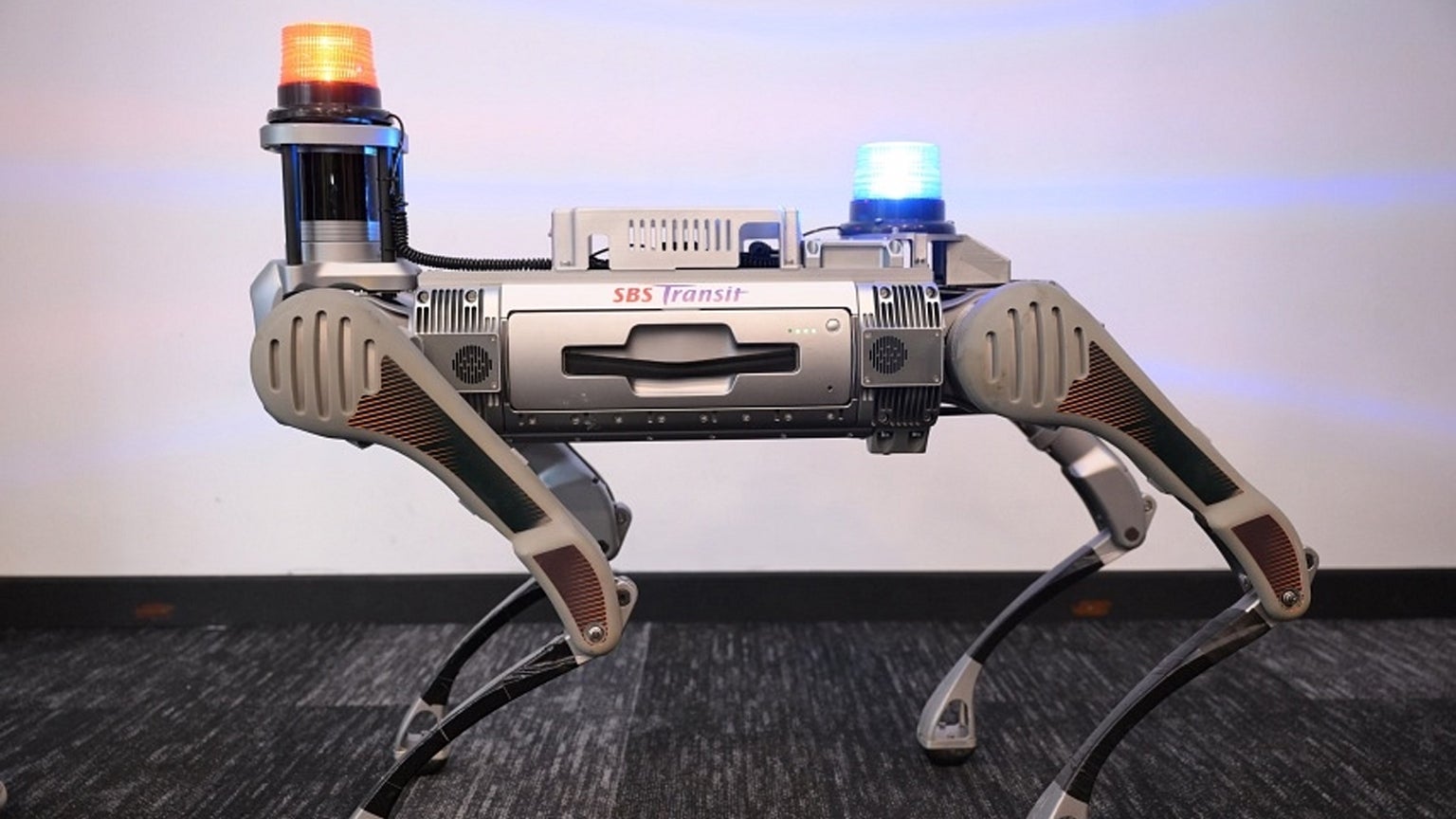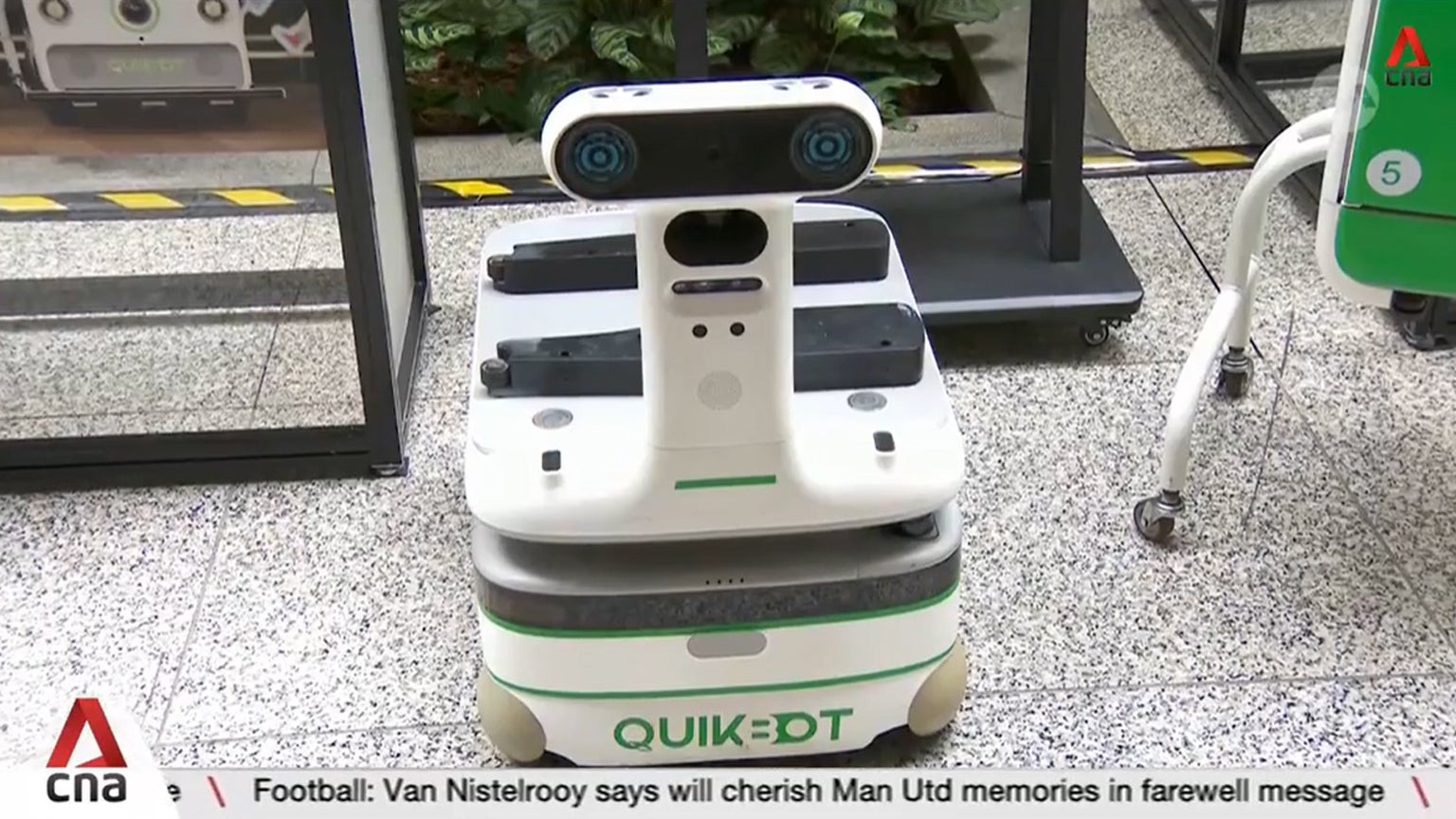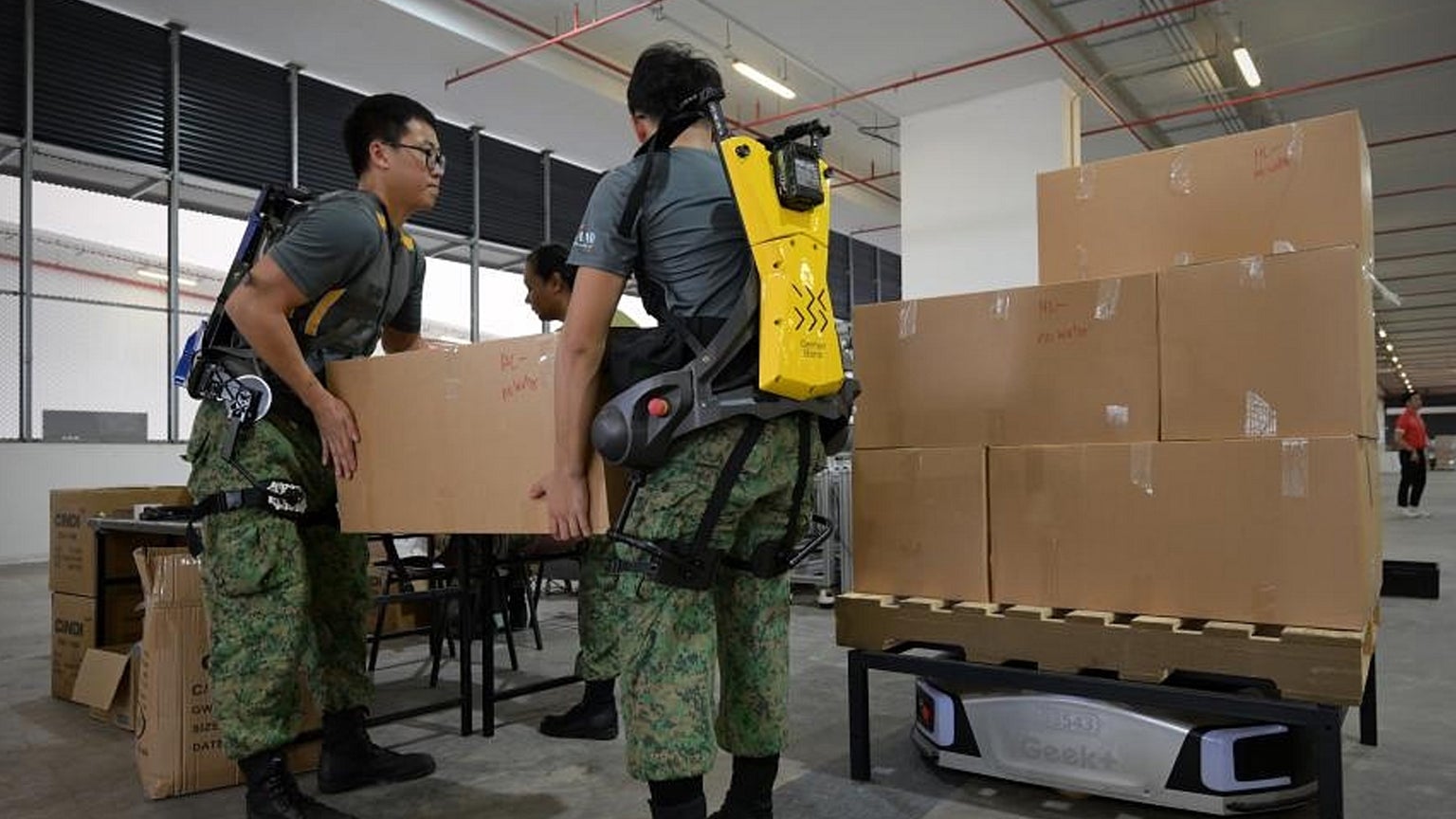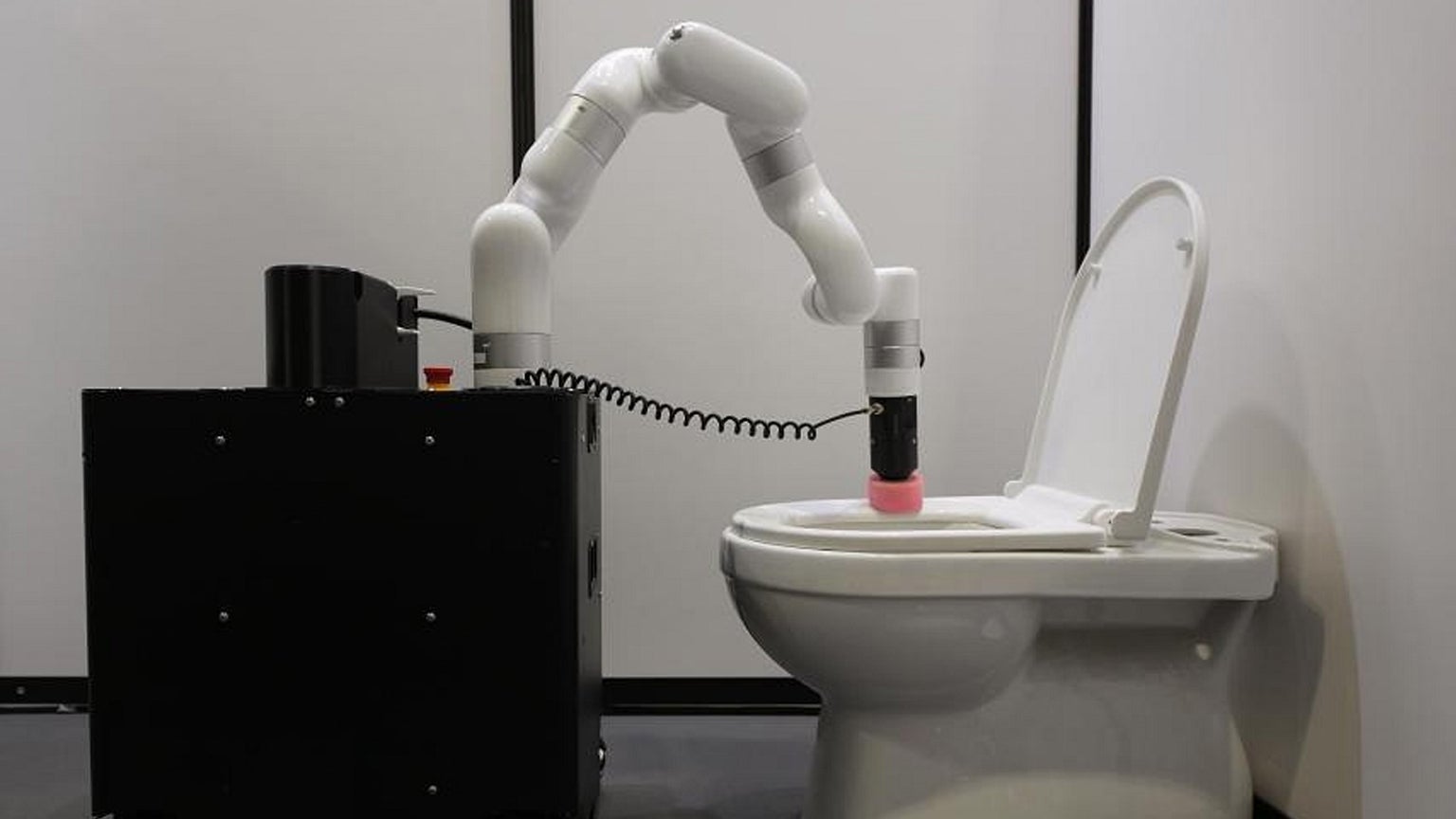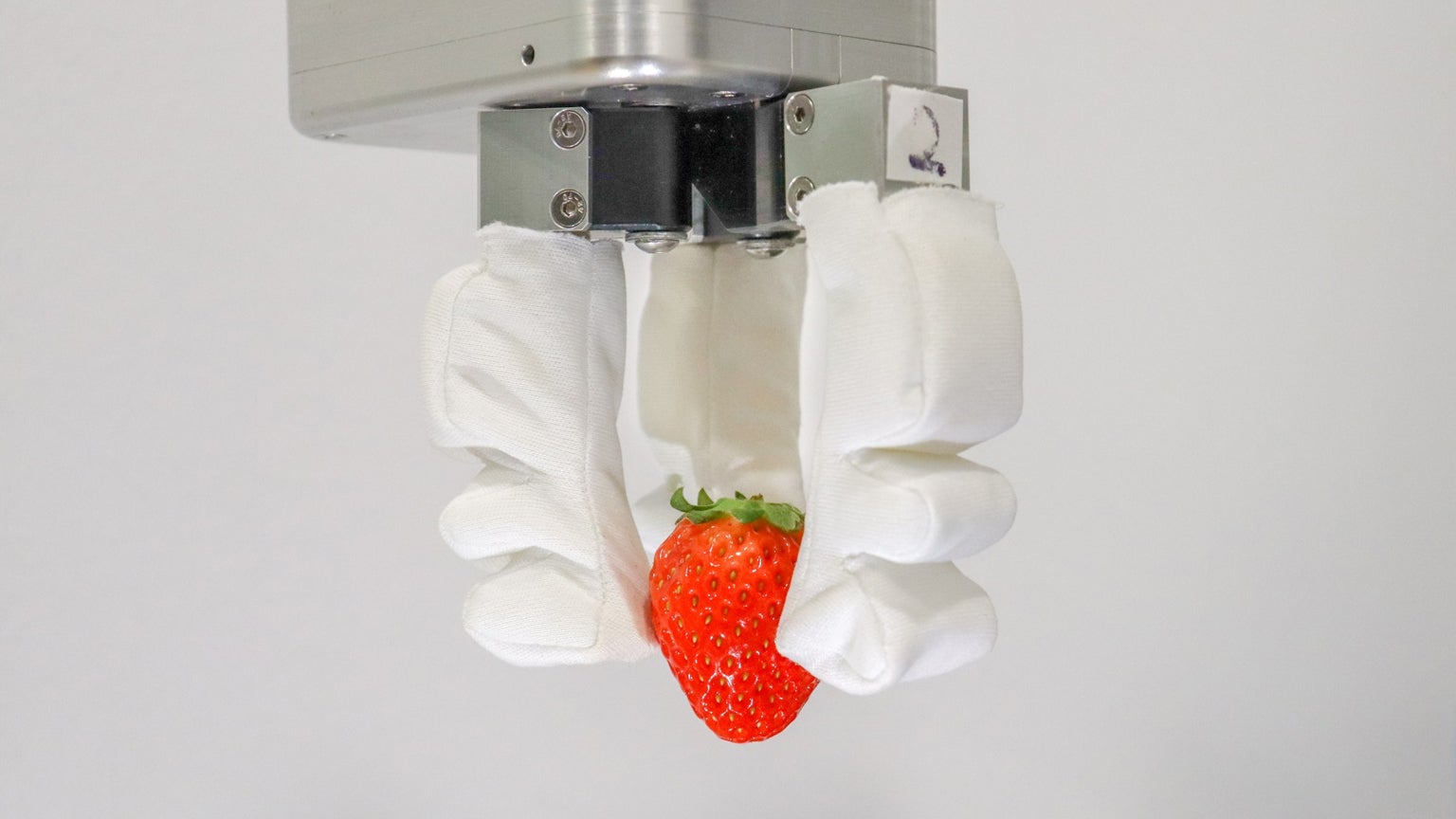Bachelor of Engineering
(Robotics and Machine Intelligence)
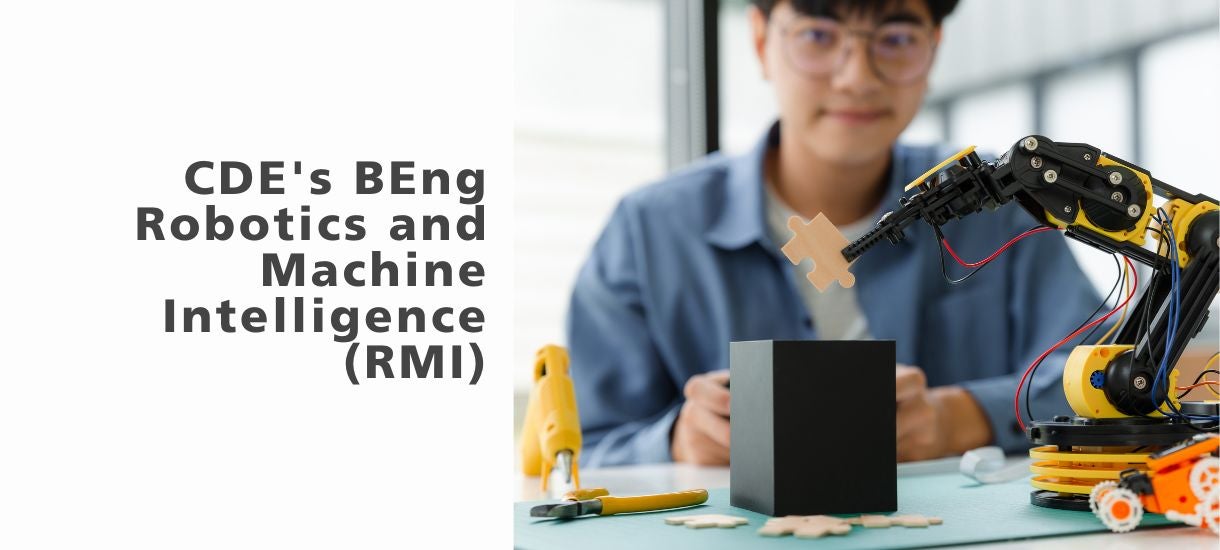
Overview
In this evolving landscape of engineering, driven by advanced technologies and innovative solutions to complex challenges, we are proud to introduce the Bachelor of Engineering in Robotics and Machine Intelligence (BEng RMI) programme, which will receive its first intake in AY2025/2026.
This programme acknowledges the transformative trends influencing the future of engineering, including Advanced Manufacturing, Automation, Robotics, Artificial Intelligence (AI), Computational Modelling, Machine Learning (ML), Digital Twins, Internet of Things (IoT), Smart Materials, Sustainability, Energy Efficiency, and Renewable Energy - both locally in Singapore and globally.
Why Robotics and Machine Intelligence?
The field of Robotics and Machine Intelligence is at the heart of technological advancements.
The programme was developed directly in response to industry needs and feedback, emphasising the growing importance of intelligent systems in robotics. It reflects the increasing demand for graduates with expertise in Robotics and Machine Learning (ML). The programme is focused on ensuring that RMI graduates are highly employable and well-prepared to become leaders in the future of intelligent robotics.
Programme Structure and Curriculum Highlights
The BEng RMI programme is a four-year direct honours programme hosted by the Department of Mechanical Engineering. It is uniquely supported by an interdisciplinary collaboration involving the Departments of Biomedical Engineering, Chemical and Biomolecular Engineering, Electrical and Computer Engineering, and Materials Science and Engineering. This collaborative structure ensures a diverse educational experience that reflects real-world applications.
Students will engage in a comprehensive curriculum designed to provide a strong foundation in multidisciplinary technologies. Key topics include:
- Design and Analysis
- Control Theory
- Computer Programming
- Machine Intelligence
The curriculum emphasises both theoretical and practical aspects, ensuring graduates have a robust understanding of the principles and practices involved in the design, implementation, and maintenance of robotic systems.
Hands-On Experience
To complement classroom learning, the programme incorporates hands-on projects, internships, and laboratory work. These elements are crucial for translating theoretical knowledge into practical skills, preparing students to meet and tackle industry challenges effectively.
Career Prospects
BEng (RMI) graduates have a wide range of career prospects, as the field is interdisciplinary and applicable to various industries. Potential career paths and prospects include: research and development, manufacturing and automation, healthcare and medical robotics, aerospace and defense, service robotics, startups, consulting, and more!
When will the programme be launched?
The BEng RMI will be available from AY2025/2026 and RB courses will be available progressively from AY2025/2026.
NUS AI Talent Scholarship
If you are a Singapore citizen applying to RMI, you have exclusive access to this coveted scholarship, reserved for outstanding students pursuing AI-related programmes at NUS. This scholarship is unique within CDE, specifically for RMI, and is offered in addition to other scholarships such as the NUS Global Merit Scholarship, NUS Merit Scholarship and CDE’s own highly sought-after E-Scholars.
Find more scholarship information here.
FAQ: What is the difference between the BEng in Robotics and Machine Intelligence (RMI) and a specialisation in Robotics?
The BEng RMI and Specialisation in Robotics provide prospective students with distinct pathways to excel in their chosen fields, depending on their interests and intended career paths.
BEng Robotics and Machine Intelligence
The BEng RMI is an interdisciplinary programme built upon the expertise available in the Departments of Biomedical Engineering, Chemical and Biomolecular Engineering, Electrical and Computer Engineering, Materials Science and Engineering, and Mechanical Engineering. It applies elements of these disciplines with data science and artificial intelligence to robots and automated systems.
It is designed for those who have already determined that robotics is their chosen field and wish to explore career opportunities based on robotics.
BEng RMI students will gain extensive training in Artificial Intelligence (AI), Machine Learning (ML), Internet of Things (IoT), Data Analytics, and Automation areas integrated into the core curriculum. It prepares students for the next generation of intelligent robotic systems, pivotal to the future of robotics and automation industries. The RMI degree is a cutting-edge programme that addresses the demands of today's industry and the challenges of the future.
RMI graduates will possess a holistic skillset with a multidisciplinary edge and be trained to work at the intersection of robotics, AI, and ML. They can pursue careers as robotics engineers, AI system developers, automation specialists, and intelligent system designers in AV, healthcare robotics, and advanced manufacturing industries.
Specialisation in Robotics
Students from Mechanical Engineering, Electrical Engineering, Computer Engineering and Biomedical Engineering may opt for this specialisation, which requires only 20 units to complete, which is the equivalent of 5 courses from a basket of Robotics electives, or 3 electives (12 units) with a final-year research project (8 units) in the field of robotics. The specialisation offers the opportunity for students to apply the core competencies they have gained in their respective engineering disciplines to robotics systems.
For example, a student majoring in mechanical engineering would be well-suited to apply his technical design skills to the design of mechanical components within robotic systems but might not possess the same breadth of knowledge specific to robotics, especially in the areas of artificial intelligence and machine learning. On the other hand, the expertise of a mechanical engineering graduate in fluid dynamics, thermal systems and manufacturing processes offers career opportunities in a broad range of industries, such as aerospace, energy management and security, transportation and advanced manufacturing.
Such graduates will be versatile and capable of pursuing careers in robotics-related areas.
Robotics in the News:
See the potential of robotics in Singapore and some of the exciting research in robotics being done in CDE!

Soft robots with human-like perception can anticipate sensory inputs, detect contact and adapt dynamically, paving the way for applications in autonomous exploration and precision-driven medical procedures.
Research by: Professor Cecilia Laschi (Mechanical Engineering)

Driven by a differential series elastic actuator, a novel back-support exoskeleton aids users during lifting tasks, easing strain without adding muscle activation to the back and legs.
Research by: Associate Professor Yu Haoyong (Biomedical Engineering)

Soft, robust miniature robots powered by fluid kinetic energy can traverse tricky terrains at impressive speeds, offering a valuable new tool for search and rescue operations.
Research by: Associate Professor Raye Yeow (Biomedical Engineering)
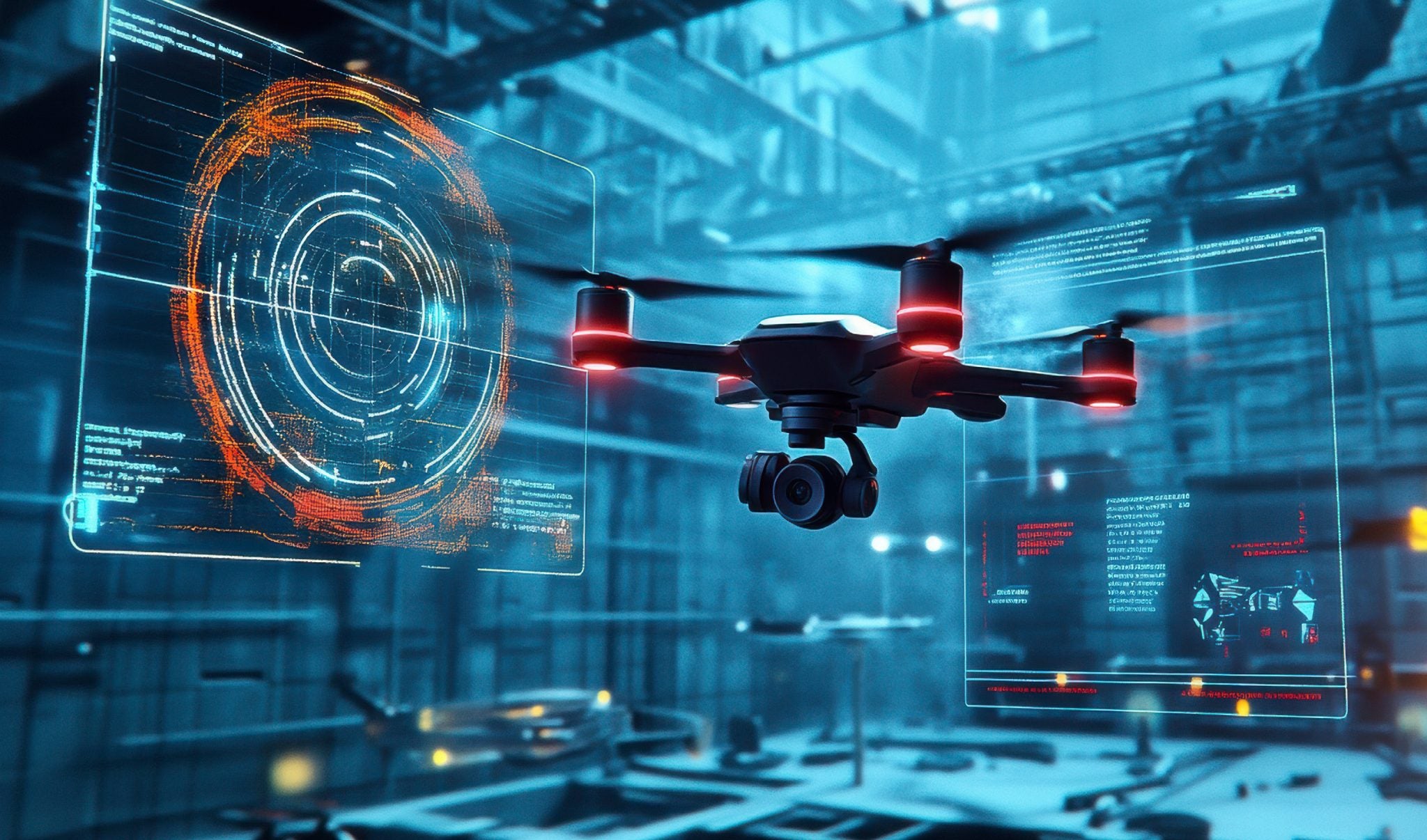
A fast-adaptive estimator for robust flight control draws from the best of both deep-learning techniques and conventional control algorithms to improve drone performance.
Research by: Assistant Professor Zhao Lin (Electrical and Computer Engineering)
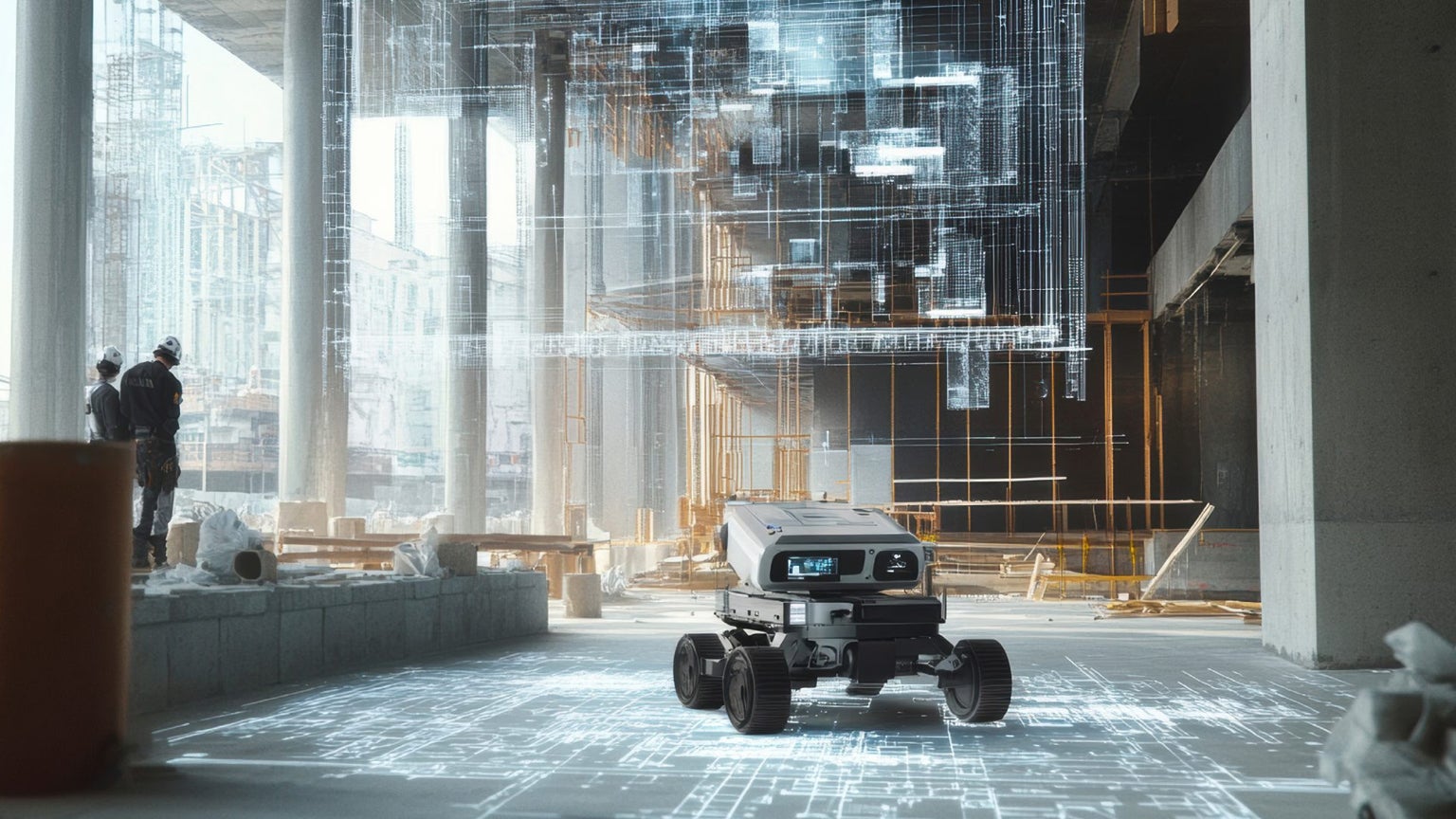
By improving how unmanned ground vehicles see and navigate complex, cluttered construction sites, automation is set to transform tasks like site mapping and monitoring.
Research by: Dr Justin Yeoh (Civil and Environmental Engineering)
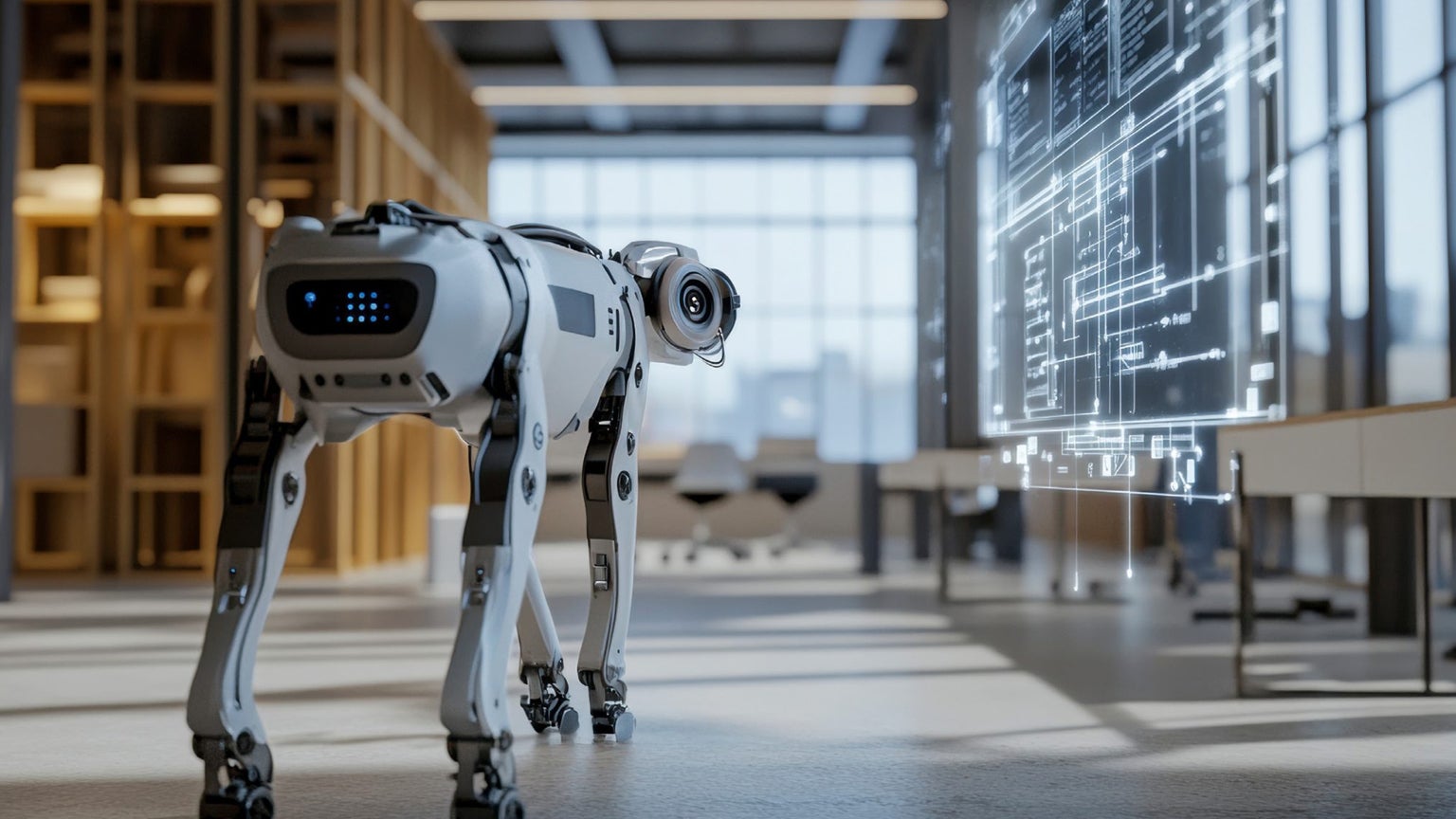
By integrating building information with indoor spatial data, robots are equipped with the capability to navigate and map complex indoor spaces more efficiently, advancing how industries capture the digital representation of the built environment.
Research by: Assistant Professor Vincent Gan (The Built Environment)
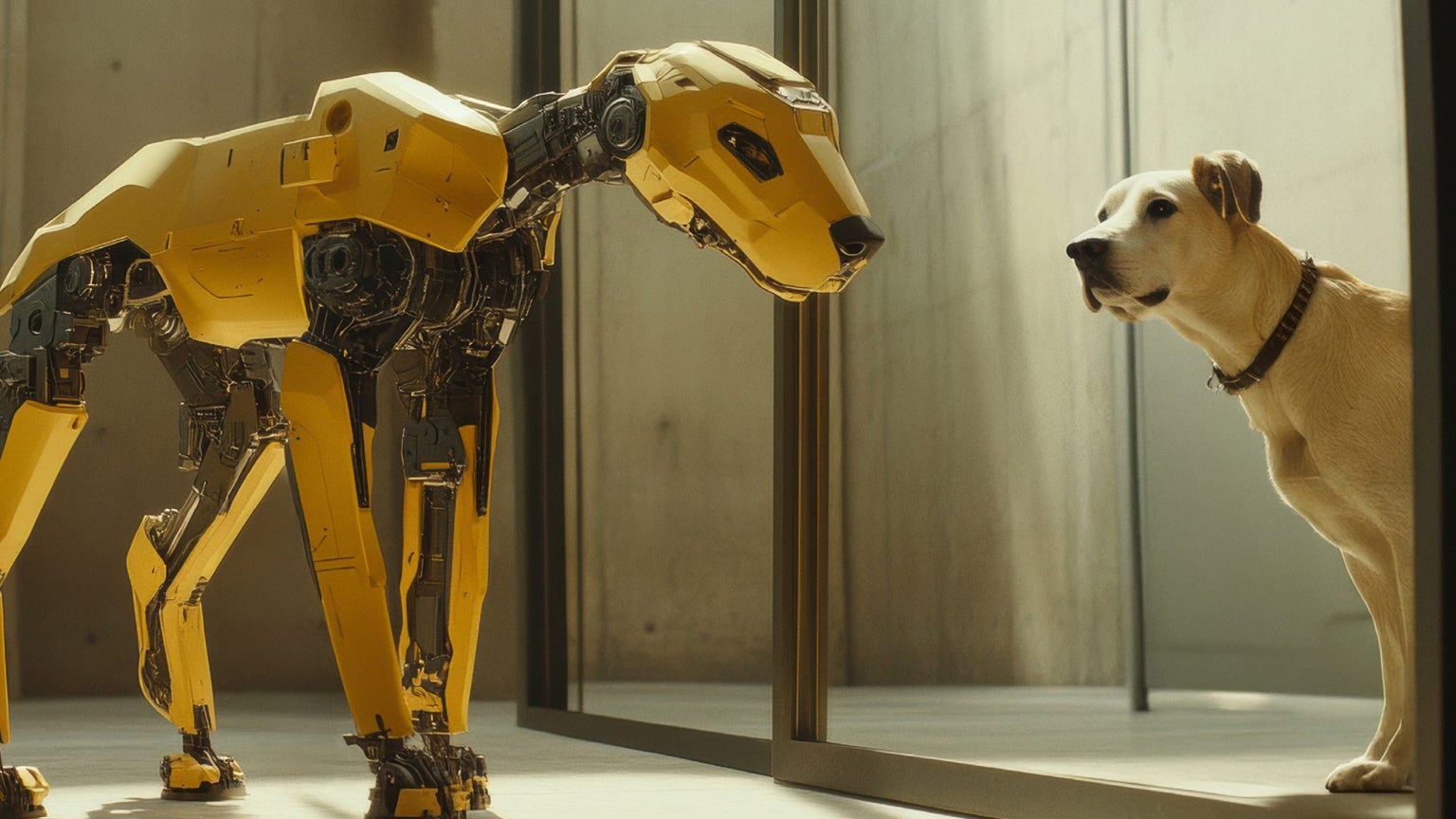
Modelled on the neural control systems of animals, a new layered control framework enables legged robots to navigate complex terrains with greater agility and precision.
Research by: Assistant Professor Guillaume Sartoretti (Mechanical Engineering)
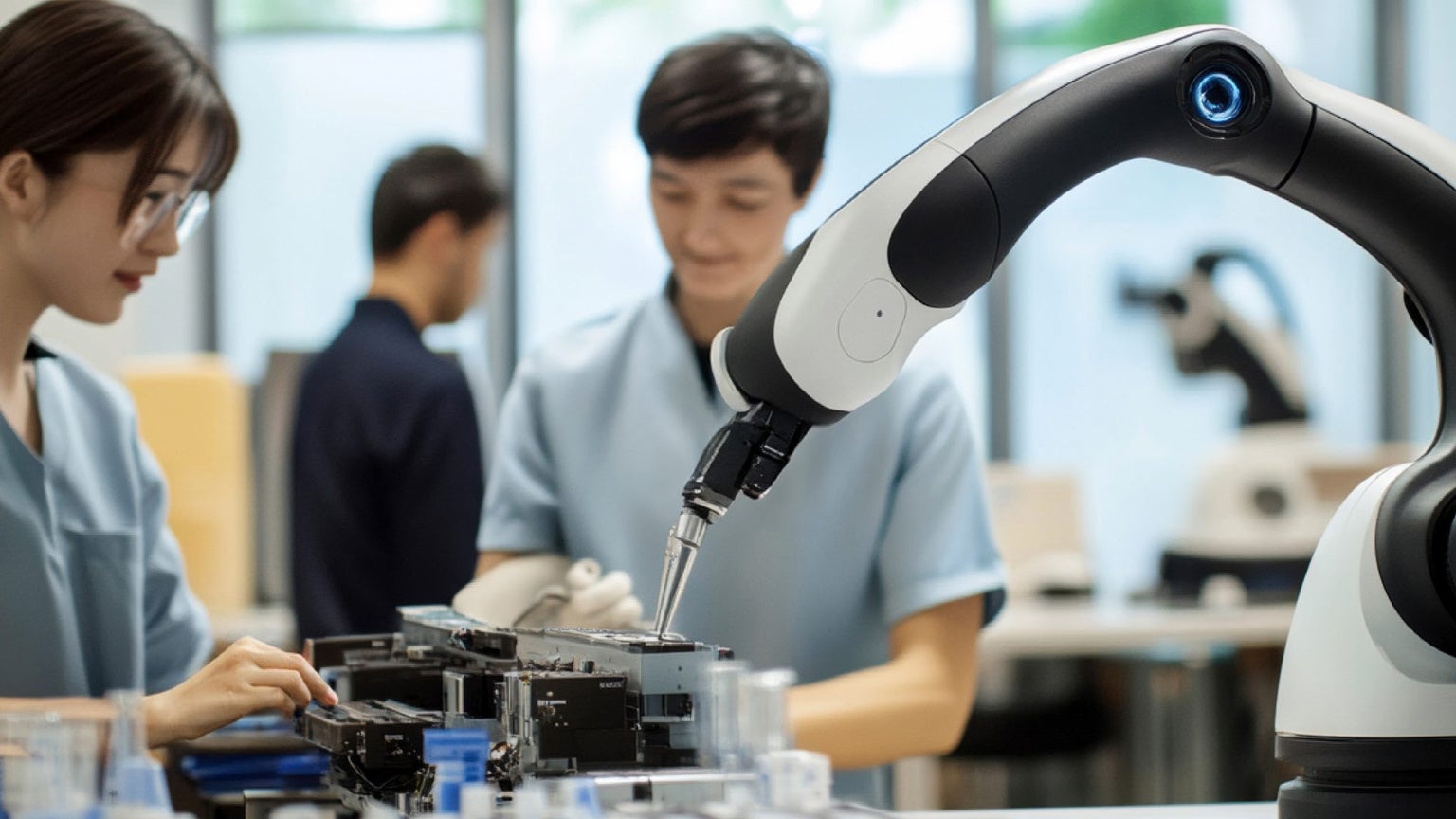
Designing safe, reliable and human-centric robots is a growing priority as they become an integral part of daily life.
Research by: Assistant Professor Fan Shi (Electrical and Computer Engineering)
